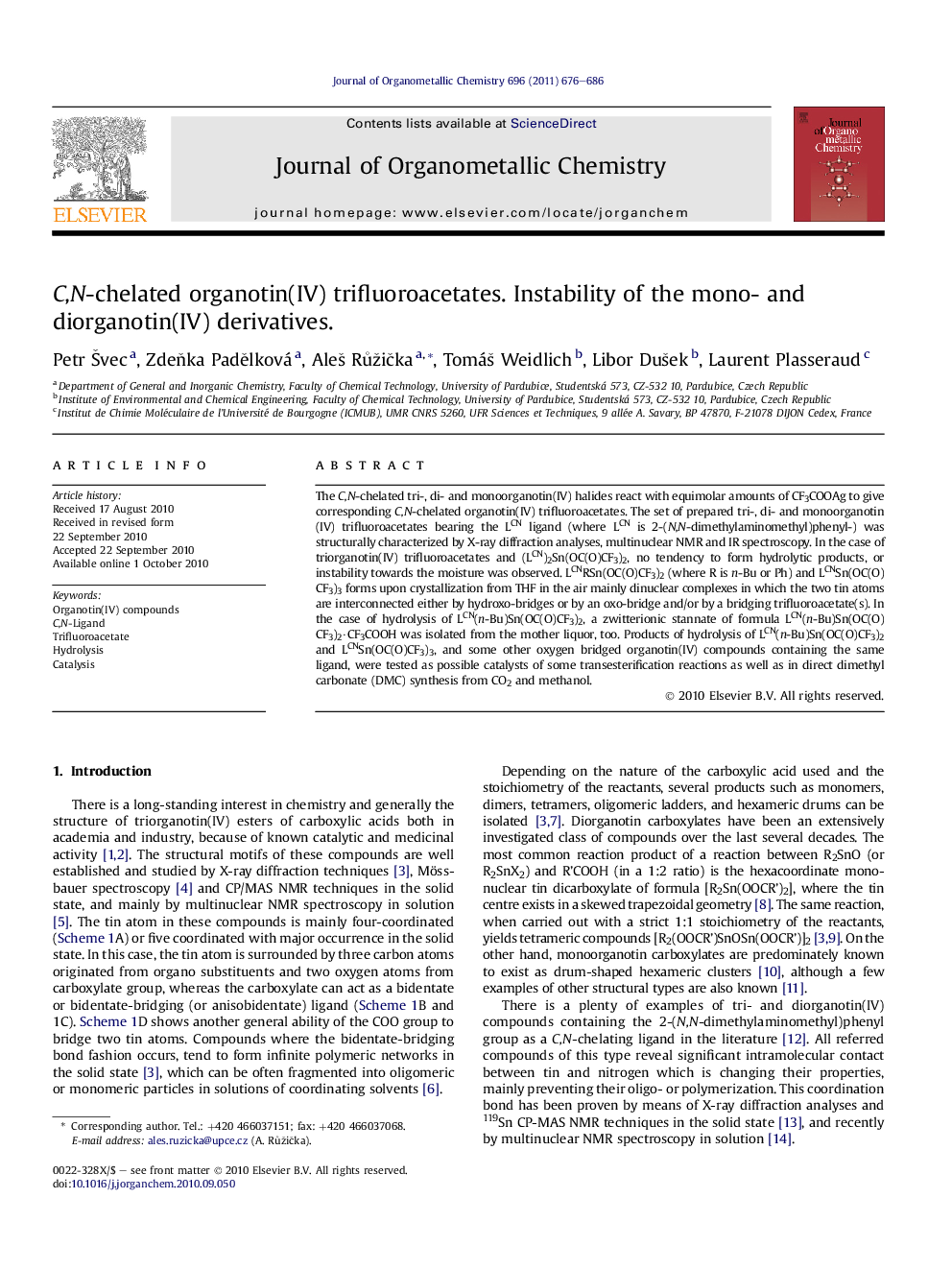| Article ID | Journal | Published Year | Pages | File Type |
|---|---|---|---|---|
| 1322518 | Journal of Organometallic Chemistry | 2011 | 11 Pages |
The C,N-chelated tri-, di- and monoorganotin(IV) halides react with equimolar amounts of CF3COOAg to give corresponding C,N-chelated organotin(IV) trifluoroacetates. The set of prepared tri-, di- and monoorganotin(IV) trifluoroacetates bearing the LCN ligand (where LCN is 2-(N,N-dimethylaminomethyl)phenyl-) was structurally characterized by X-ray diffraction analyses, multinuclear NMR and IR spectroscopy. In the case of triorganotin(IV) trifluoroacetates and (LCN)2Sn(OC(O)CF3)2, no tendency to form hydrolytic products, or instability towards the moisture was observed. LCNRSn(OC(O)CF3)2 (where R is n-Bu or Ph) and LCNSn(OC(O)CF3)3 forms upon crystallization from THF in the air mainly dinuclear complexes in which the two tin atoms are interconnected either by hydroxo-bridges or by an oxo-bridge and/or by a bridging trifluoroacetate(s). In the case of hydrolysis of LCN(n-Bu)Sn(OC(O)CF3)2, a zwitterionic stannate of formula LCN(n-Bu)Sn(OC(O)CF3)2·CF3COOH was isolated from the mother liquor, too. Products of hydrolysis of LCN(n-Bu)Sn(OC(O)CF3)2 and LCNSn(OC(O)CF3)3, and some other oxygen bridged organotin(IV) compounds containing the same ligand, were tested as possible catalysts of some transesterification reactions as well as in direct dimethyl carbonate (DMC) synthesis from CO2 and methanol.
Graphical abstractThe C,N-chelated tri-, di- and monoorganotin(IV) trifluoroacetates were prepared and its structure including products of hydrolysis studied. Some compounds were tested as possible catalysts of some reesterification reactions as well as in dimethylcarbonate synthesis from CO2 and methanol.Figure optionsDownload full-size imageDownload as PowerPoint slideResearch highlights►C,N-chelated organotin(IV) trifluoroacetates were prepared. ►Mono- and diorganotin(IV) compounds form dinuclear complexes in air. ►Monorganotin(IV) compound reveal catalytic activity in some transesterification reactions. ►The direct dimethylcarbonate (DMC) synthesis from CO2 and methanol catalyzed by studied compounds is reported.
